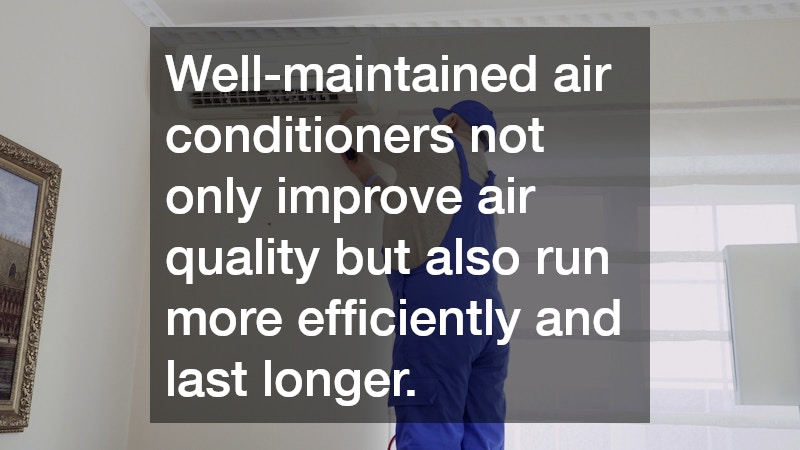Air conditioners are best known for keeping homes cool during the Australian summer, but their impact goes beyond just temperature control. These systems also play an important role in maintaining indoor air quality, which affects everything from your comfort to your overall health.
Whether you’re spending time at home, working remotely or managing allergies, the air you breathe indoors matters. A well-maintained air conditioning system can help filter out airborne particles, regulate humidity and support better breathing all year round.
Filtering out dust and pollutants
One of the most valuable functions of air conditioners is their ability to filter indoor air. Most systems include built-in filters that trap dust, pollen and other small particles that can trigger allergies or irritate the respiratory system.
This is especially important in urban areas where outside air may carry pollution from vehicles and nearby construction. When windows and doors are closed, your air conditioner becomes the main line of defence against indoor pollutants.
For people with asthma or allergies, a properly maintained system can significantly reduce exposure to irritants. However, these benefits depend on regular cleaning and timely filter replacement to prevent buildup and maintain airflow.
Managing humidity levels
High humidity can make a room feel hotter than it is, but it also creates the perfect environment for mould, mildew and dust mites. Air conditioners help by drawing excess moisture from the air, keeping your indoor environment drier and more comfortable.
Controlling humidity isn’t just about comfort—it also helps protect your home. Damp air can damage walls, flooring and furniture over time. It can also lead to unpleasant odours and contribute to respiratory issues.
By regulating moisture, air conditioners reduce the risk of these problems and help create a healthier indoor space. Systems that include dehumidifying features are especially useful in regions with consistently high humidity.
Encouraging consistent air circulation
Good indoor air quality depends on more than just clean filters and the right temperature. Proper air circulation helps ensure that stale air doesn’t build up in rooms where windows stay closed for long periods.
Air conditioners circulate air through their ductwork or internal systems, helping move it around the home and preventing pockets of stagnant air. This movement is key to maintaining fresh air indoors, especially in bedrooms and living areas.
Some systems also include ventilation functions that bring in fresh air from outside, improving airflow without compromising temperature control. This is helpful in homes where opening windows isn’t always practical due to noise, pollution or security concerns.
Reducing the spread of airborne irritants
During allergy season or flu outbreaks, keeping indoor air clean becomes even more important. Air conditioners equipped with high-efficiency particulate air (HEPA) filters can capture smaller particles, including some bacteria and airborne viruses.
Although no system can eliminate health risks, modern air conditioners can help reduce the spread of airborne irritants when used alongside other hygiene measures. This makes them a valuable part of any healthy home environment.
It’s worth noting that not all air conditioners offer advanced filtration, so it’s important to check the specifications and consider upgrading your filters if better air quality is a priority.
Maintenance makes all the difference
While air conditioners have the potential to improve indoor air quality, they must be well-maintained to do their job properly. A dirty or clogged filter can become a source of airborne dust rather than a defence against it.
Regular maintenance includes checking and replacing filters, cleaning coils and ensuring the drainage system works correctly. This prevents mould growth inside the unit and keeps airflow consistent.
Annual servicing by a qualified technician can help identify and fix issues before they affect your system’s performance. Well-maintained air conditioners not only improve air quality but also run more efficiently and last longer.
Choosing the right system for your home
Not all homes have the same needs when it comes to air conditioning. A small apartment may benefit from a split system, while a large family home might require ducted air. The type of system you choose will influence how well it manages temperature, moisture and air quality.
Energy-efficient models often include additional features like air purifiers or smart sensors that adjust airflow based on indoor conditions. These options can improve comfort and reduce power consumption at the same time.
Working with a licensed installer ensures your system is properly sized and placed to deliver even air distribution across your home. A correctly installed system avoids cold spots and helps keep air quality consistent from room to room.
Air conditioners do more than just cool the air—they play an essential role in maintaining indoor air quality. By filtering particles, reducing humidity and improving circulation, they help create a healthier, more comfortable living environment.
To get the most from your system, regular maintenance and proper use are key. Whether you’re managing allergies, improving comfort or simply wanting fresher air, a quality air conditioner makes a noticeable difference in how your home feels and functions.


